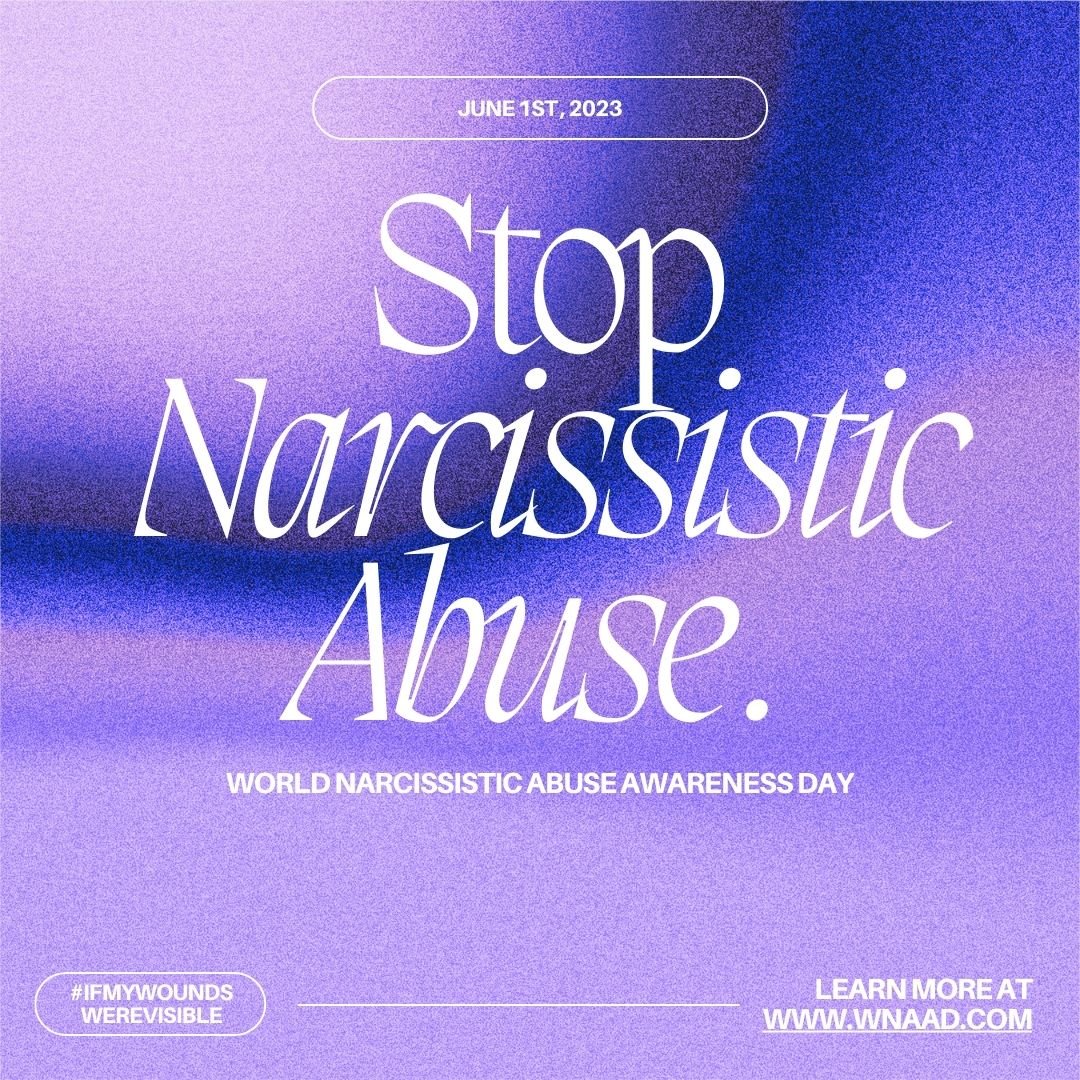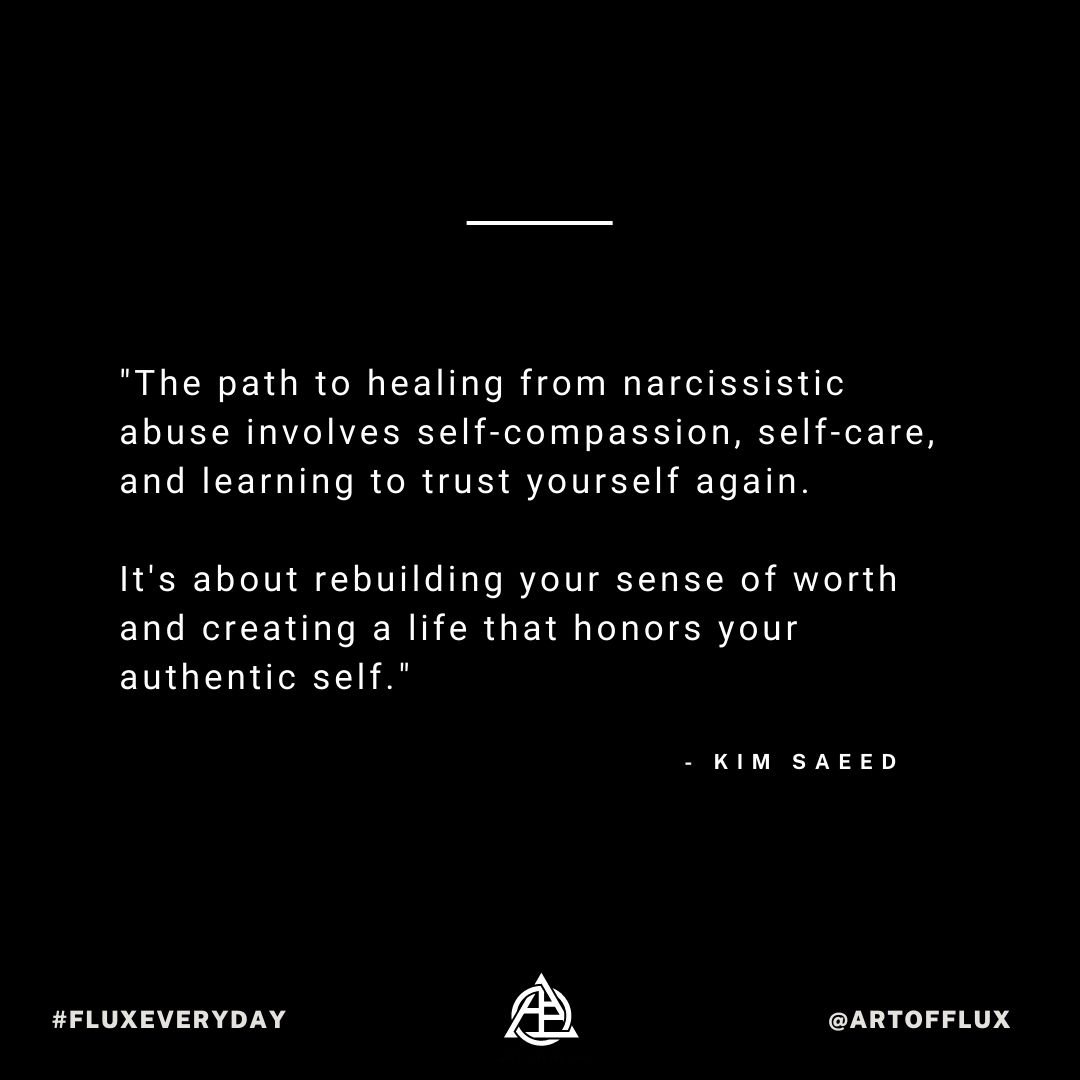Today is an important day for me. June 1st is World Narcissistic Abuse Awareness Day (WNAAD).
Mental health is a core pillar of the ART OF FLUX mindset and this specific topic is very personal to me.
WHAT IS NPD?
‘Narcissistic Abuse’ is a kind of emotional or psychological abuse by someone with narcissistic personality disorder (NPD) or with antisocial personality disorder. NPD is a condition categorized by the DSM-5 (Diagnostic and Statistical Manual of Mental Disorders) as as a “Cluster B” (dramatic / erratic) personality disorder that afflicts up to 6% of the world population, 75% of which reported are male. Many people with NPD go their entire lives undiagnosed, as it’s rare for someone with NPD to seek help, or to even admit their true feelings.
NPD abuse happens when the narcissistic person uses various tactics to control, manipulate, and harm their partner or others close to them. They may constantly seek attention, praise, and admiration, while disregarding the feelings and needs of others. They often try to gain power and control over people by using tactics like ‘gaslighting,’ making the other person doubt their own reality, or manipulation to make the victim feel guilty or unworthy. This kind of abuse can be very damaging to the victim's self-esteem, mental health, and overall well-being.
WHAT NPD IS NOT:
NPD is NOT just having an inflated ego, acting vain, or seeking attention in public, although those are traits commonly displayed by those with NPD. Narcissism can be healthy to a certain degree and is a necessary stage during child development to build an identity. There are many factors from early childhood experiences to parenting, genetics, and possibly even cultural factors that can lead to the development of NPD. Furthermore, there are various types of NPD that manifest in ways that may not seem overtly narcissistic, hence called ‘covert narcissism’.
The difference between plain narcissism and Narcissistic Personality Disorder is that NPD is a condition that leads to abusive and unhealthy relationships that benefit the narcissist. In other words, a narcissistic person sees their partner in terms of what they can offer them to either elevate or gratify themselves. Narcissistic abuse tends to involve someone lacking empathy for their partner. It leads to a victim feeling helpless, frustrated, depressed, and confused about reality. It can happen in various relationships, including romantic, family, friends, and coworkers, so recognizing the signs and seeking support is vital to break from from the cycle of abuse.
RECOVERY & TREATMENT
Recovery from NPD abuse IS possible. It takes time to heal and move on, with proper help, self care, and self development. Sometimes walking away is the only option, although that’s not always possible in every case.
Remember, people with NPD are people too. Treatment for NPD is also available, although they themselves have to truly want it. As a disorder, NPD isn’t considered curable, but that doesn’t mean that it isn’t treatable, manageable, or is always harmful. People with NPD (and all kinds of disorders) can absolutely be helpful, kind, compassionate, and loving. It’s all about self control - and that self control stems from self awareness, grounded in a state of mental wellbeing.
Taking care of your mental health is either overly stigmatized as a sign of weakness or overly glorified as a virtue signal - both are easily manipulated through marketing that targets the ego (I’d know, I’ve been working in marketing for 20+ years). We all need more agency over our ability to think independently, and not the kind that comes from repeating advertising slogans.
I view mental health as important as physical health. You can’t have one without the other.
It’s the brain that controls the body and a healthy body can contribute to mental wellbeing. Just like your body, your brain can be trained and exercised. You can also rewire your brain by tapping into its neuroplasticity through various techniques, from cognitive based therapy (CBT) to neurolinguistic programming (NLP) and many more.
But most important is a shift in thinking that we can get better by working on ourselves - it’s called a ‘growth mindset’. But first, you need to know what you’re dealing with, and you’ve also got to know what you’ve got to work with.
As with anything, the first step begins with just that - a step.
RESOURCES:
Here are just a few to get started.
BetterHelp: therapy on-demand
Calm: mindfulness meditation app
Mayo Clinic: reliable medical info and self assessment tools
PsychCentral: articles on various conditions
Verywellmind: articles and quizzes
WNAAD: the official website for World Narcissistic Abuse Awareness Day
Take care of yourselves, gang. 🙏❤️👊
J.

